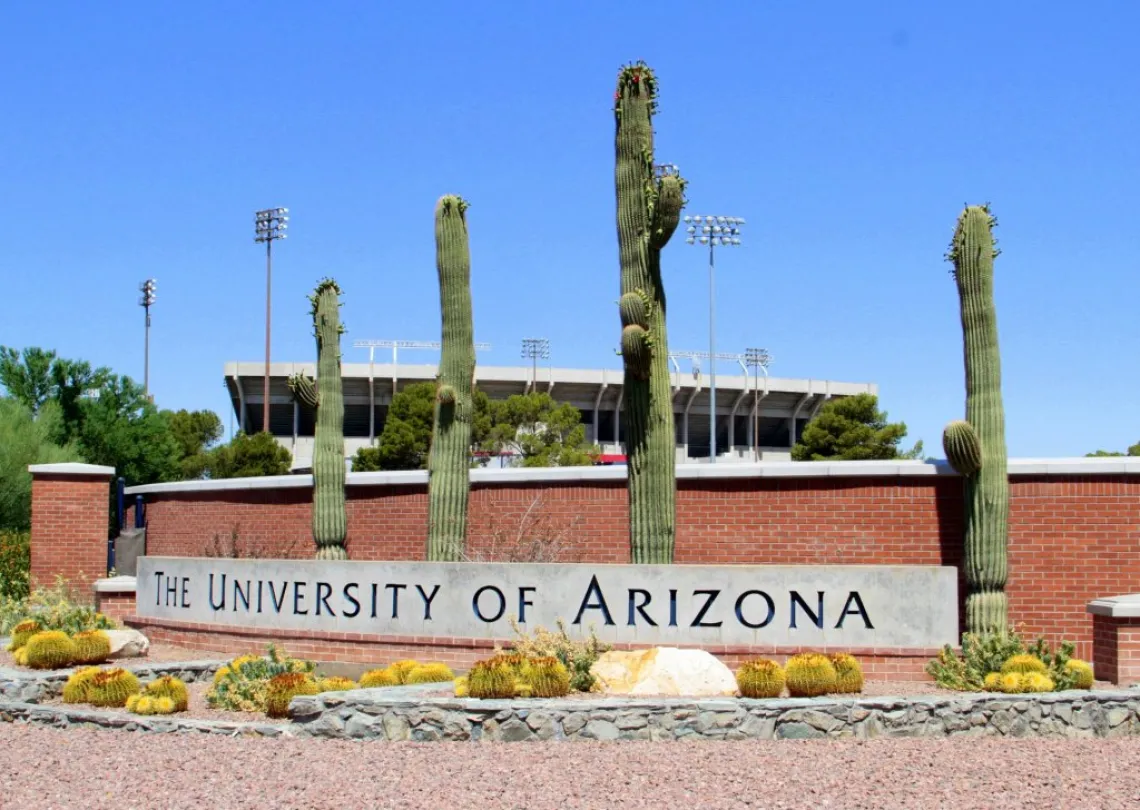Programs aimed at training Indigenous entrepreneurs finds success among Arizona tribes

This article was originally published in AZMirror
As a way to provide the training and skills needed to run a business, the University of Arizona and Arizona State University’s Thunderbird School of Global Management have developed programs geared to help Indigenous entrepreneurs.
The University of Arizona will work with five Indigenous entrepreneurs from the San Carlos Apache Tribe as part of Native FORGE. The program aims to provide and facilitate high-quality entrepreneurship development and support services to underserved communities in Tucson and the 22 federally recognized tribes in Arizona.
“Working with these entrepreneurs is an exciting opportunity for both FORGE and the tribal community,” said Rafael Tapia Jr, the Native FORGE program’s mentor-in-residence.
“The University of Arizona learns more about how to best support the needs of tribal businesses, and the entrepreneurs gain resources and education that they can share and use to scale their businesses,” Tapia added.
The University of Arizona received a five-year, $500,000 matching grant from the U.S. Economic Development Administration to establish Native FORGE.
In 2018, the U.S. Small Business Administration reported that less than 0.8% of Arizona businesses were Native American-owned, according to the University of Arizona.
Native FORGE aims to help close those gaps by supporting Arizona tribes’ efforts to create and implement viable strategies to build capacity for job growth.
The entrepreneurs from the San Carlos Apache Tribe will be the program’s first cohort, and they will be attending the first Native FORGE Conference held in Tucson on Nov. 2 and 3.
“The impact from the Native FORGE program that I hope to see within the San Carlos Apache tribal communities is economic growth through small business,” said Kodee Goseyun, the Economic Development Specialist for the San Carlos Apache Tribe.
“The San Carlos Apache Tribe needs additional resources to provide business consultations, business outreach, and entrepreneurial opportunities for our tribal members to be successful in the business field,” Goseyun added.
The five entrepreneurs from the San Carlos Apache Tribe participating in the program include Alice Juan of Bylas District Economic Enterprise, Rachelyn Kenton of Seven Mile Wash Economic Enterprise, Davida Olivar of Hometown Events, Tristan Sneezy of Apache Fuel & Public Management and Davison “Beejay” Ward Jr. of Sewn by Beejay.
The other program working to help Indigenous entrepreneurs comes from the Thunderbird School of Global Management.
Project DreamCatcher, the free business development program, offers a one-week business training program with MBA-level business classes taught in person at the Thunderbird School of Global Management’s Global Headquarters on ASU’s Downtown Phoenix campus.
“Project DreamCatcher provides a supportive community where Native American women can gain not only strategic business skills but also nurture professional relationships that can help them as they start or grow their businesses,” said Dinora Gonzalez, project manager for Project DreamCatcher.
The program’s latest cohort included 21 Indigenous women, who all graduated from the program with the professional skills they need to pursue their business goals.
As part of the program, participants had access to graduate-level classes, coaching and advising sessions with business professionals, and networking activities designed to develop new skills and the confidence to start or grow a business.
“This is a place for Native American women to share their culture, dreams, and goals with other like-minded entrepreneurs,” Gonzalez said. “Our goal is to empower these women to pursue their dreams by helping them develop the skills critical to their success.”
The following Project DreamCatcher cohort will run from November 13 to 18. Priority is given to enrolled members of the Hualapai, San Carlos Apache, White Mountain Apache tribes, Tohono O’odham, or Navajo Nation.

